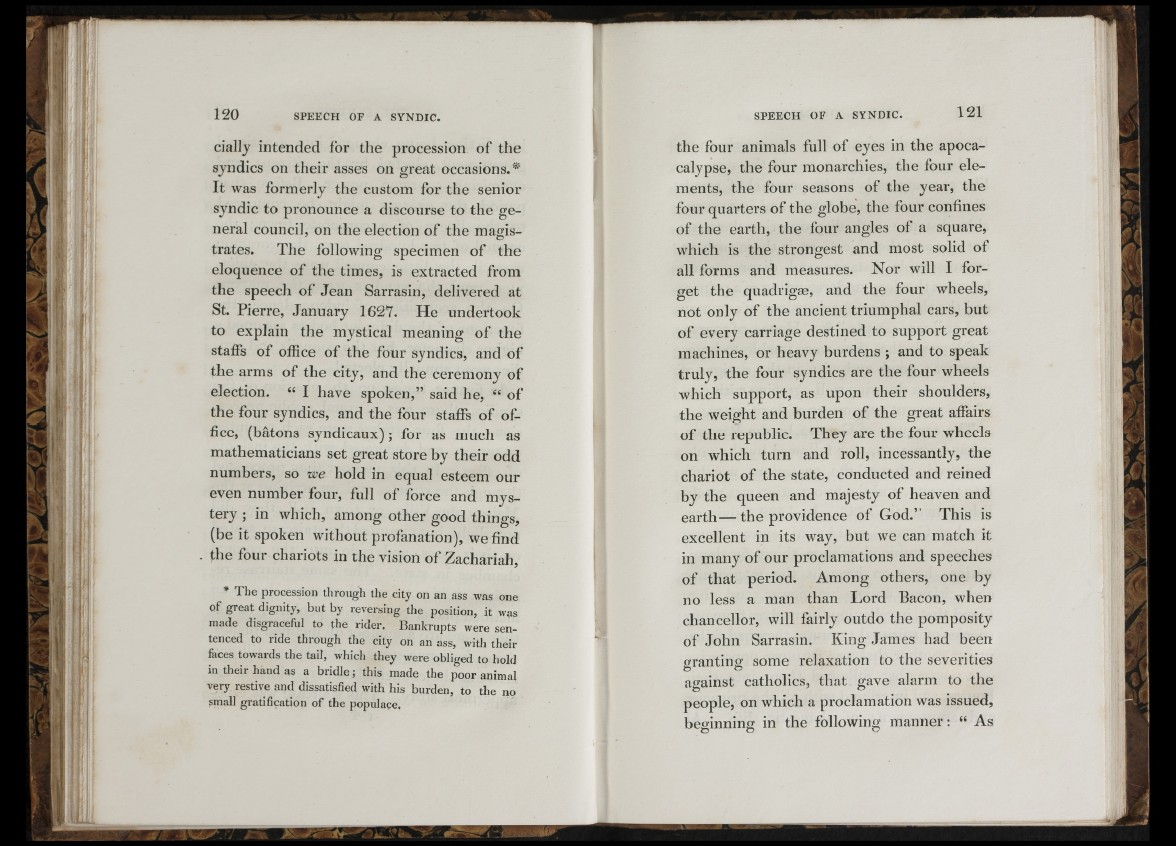
LI. . k , -
-.1
»U•jili
fii k i. :il. I ■
i
S‘‘:
cially intended for the procession of the
syndics on their asses on great occasions.*
I t was formerly the custom for the senior
syndic to pronounce a discourse to the general
council, on the election of the magistrates.
The following specimen of the
eloquence of the times, is extracted from
the speech o f Jean Sarrasin, delivered at
St. Pierre, January 1627. He undertook
to explain the mystical meaning of the
staffs o f office of the four syndics, and of
the arms of the city, and the ceremony of
election. “ I have spoken,” said he, “ of
the four syndics, and the four staffs of office,
(batons syndicaux) ; for as much as
mathematicians set great store by their odd
numbers, so we hold in equal esteem our
even number four, full of force and mystery
; in which, among other good things,
(be it spoken without profanation), we find
the four chariots in the vision of Zachariah,
* The procession through the city on an ass was one
of great dignity, but by reversing the position, it was
made disgraceful to the rider. Bankrupts were sentenced
to ride through the city on an ass, with their
faces towards the tail, which they were obliged to hold
in their hand as a bridle ; this made the poor animal
very restive and dissatisfied with his burden, to the no
small gratification of the populace.
the four animals full of eyes in the apoca-
calypse, the four monarchies, the four elements,
the four seasons of the year, the
four quarters of the globe, the four confines
of the earth, the four angles of a square,
which is the strongest and most solid of
all forms and measures. Nor will I forget
the quadrigse, and the four wheels,
not only of the ancient triumphal cars, but
of every carriage destined to support great
machines, or heavy burdens ; and to speak
truly, the four syndics are the four wheels
which support, as upon their shoulders,
the weight and burden of the great affairs
of the republic. They are the four wheels
on which turn and roll, incessantly, the
chariot of the state, conducted and reined
by the queen and majesty of heaven and
earth— the providence of God.” This is
excellent in its way, but we can match it
in many of our proclamations and speeches
of that period. Among others, one by
no less a man than Lord Bacon, when
chancellor, will fairly outdo the pomposity
of John Sarrasin. King James had been
granting some relaxation to the severities
against catholics, that gave alarm to the
people, on which a proclamation was issued,
beginning in the following manner: “ As
|«H
■I
Ar
'M.